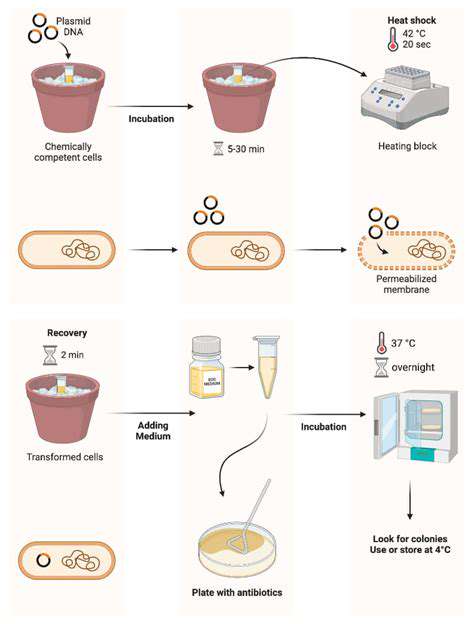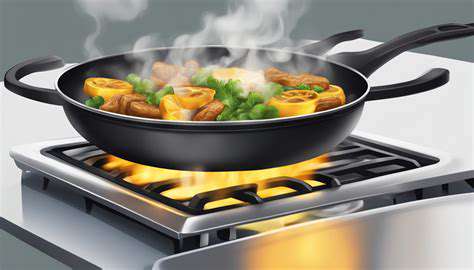Authentic Austrian Schnitzel: Crispy & Delicious
Jul 24, 2025 / btwgardenmachine/
The Art of Bread Crumb Perfection: A Critical Step

Understanding the Bread Crumb
Bread crumbs, those seemingly simple particles, hold a surprisingly complex role in culinary artistry. They are more than just a finishing touch; they act as a crucial binding agent, a textural enhancer, and a delightful crunch that elevates the final product. The quality of the bread crumbs directly impacts the outcome of dishes, from the crispness of fried foods to the satisfying texture of baked goods.
Choosing the right type of bread for your crumbs is paramount. You'll find that different breads, such as stale white bread, sourdough, or even day-old rolls, yield crumbs with varying textures and flavors. Understanding these differences will allow you to tailor the bread crumbs to your specific recipe's needs.
Preparing Your Bread Crumbs
The preparation process for bread crumbs significantly influences their final performance. Properly drying and preparing the bread ensures that the crumbs maintain their texture and don't absorb excess oil during cooking. A crucial step is ensuring the bread is completely dry to prevent sogginess and maintain a crisp, desirable texture in the final dish. This process is easily overlooked but makes a substantial difference.
Achieving the Perfect Crunch
For achieving that perfect crunch, consider the technique of drying the bread. Letting the bread air dry completely before grinding is vital for ensuring the crumbs' crispiness. This method allows the bread to lose moisture, resulting in a satisfying crunch that elevates the final dish.
Proper grinding of the bread is also critical. Using a food processor or a fine grater will yield different sizes and textures of breadcrumbs. This control over the particle size allows you to adapt to various recipes and desired results.
Pairing Bread Crumbs with Other Ingredients
The beauty of bread crumbs lies in their versatility. They form a fantastic base for coating meats, vegetables, and seafood, enhancing their flavor and providing a satisfying crunch. Bread crumbs can be seasoned with herbs, spices, or even a touch of garlic powder to deepen the flavor profile of the final dish.
Experimenting with different flavor combinations, such as smoked paprika, Parmesan cheese, or even herbs de Provence, can significantly elevate the overall taste and texture of the food item.
The Importance of Texture and Seasoning
Bread crumbs contribute significantly to a dish's overall texture. The crispness of the crumbs adds a delightful contrast to the softer elements of a dish, enhancing the overall experience. A well-seasoned bread crumb coating can elevate the flavor of even the simplest ingredients.
Paying attention to the seasoning is crucial. A sprinkle of salt and pepper can elevate the taste of the bread crumbs, and the addition of herbs or spices can create a truly unique and flavorful coating. The seasoning should complement the dish's primary flavors.
Traditional Chinese Medicine (TCM) views weight management not as a simple calorie deficit, but as a deeper issue related to the interconnectedness of the body's energy systems. TCM practitioners assess the individual's constitution, identifying imbalances in the body's vital energy, known as Qi. These imbalances can manifest in various ways, affecting digestion, metabolism, and emotional well-being. Understanding these underlying imbalances is crucial for developing a personalized weight management plan that addresses the root cause rather than just the symptoms.
Mastering the Cooking Technique: Achieving Crispy Perfection

Mastering the Fundamentals
Understanding the fundamental cooking techniques is crucial for any aspiring chef. These techniques, from basic knife skills to mastering heat control, form the bedrock of culinary artistry. Learning these fundamentals unlocks a world of culinary possibilities, allowing you to confidently approach a wide range of recipes and dishes.
From sautéing vegetables to roasting meats, each technique demands precision and practice. This foundation will empower you to create delicious and well-executed meals, whether you're a novice or a seasoned cook.
Knife Skills: The Cornerstone of Precision
Mastering knife skills is paramount in the kitchen. A sharp knife not only makes food preparation faster and more efficient but also ensures a cleaner and more precise cut, resulting in better-looking and often more flavorful dishes. Proper knife handling techniques prevent accidents and improve the overall cooking experience.
Heat Control: Mastering the Art of Temperature
Controlling heat is essential for achieving optimal results in cooking. Different foods react differently to varying temperatures. Understanding how heat affects ingredients is vital for achieving the desired texture and flavor. Whether it's searing a steak to perfection or gently simmering a stew, accurate temperature control is paramount.
Precise temperature management also prevents overcooking or undercooking, leading to a more enjoyable culinary outcome.
Flavor Combinations: Harmonizing the Palate
Understanding flavor combinations is an art form. It's more than just a random mix of ingredients; it's about creating a harmonious balance of tastes, textures, and aromas. This knowledge allows chefs to craft dishes that delight the palate and create a memorable culinary experience. A deep understanding of flavor profiles helps in identifying and utilizing complementary flavors, ultimately leading to well-rounded and delicious meals.
Cooking Methods: Mastering the Techniques
Different cooking methods bring out unique characteristics in ingredients. From grilling to baking, each method results in a specific texture and flavor profile. Understanding these techniques allows you to choose the optimal method for each ingredient and recipe. This knowledge empowers you to tailor your cooking methods to suit your needs and achieve the desired outcome.
Recipe Adaptation: Tailoring for Success
Adapting recipes is a crucial skill for any cook. Often, recipes are guidelines, not strict rules. A skilled cook understands how to adjust ingredients and techniques to suit their needs and preferences. This is particularly important when working with dietary restrictions or simply wanting to personalize a dish. Adapting recipes allows for creativity and caters to individual preferences.
Time Management in the Kitchen: Efficiency and Precision
Effective time management is crucial in the kitchen, especially when preparing multiple dishes or serving a large number of people. Organizing your work space and planning your steps in advance can significantly reduce stress and ensure smooth, efficient cooking processes. A well-organized kitchen is a key to success in the kitchen. Proper time management helps prevent mistakes and ensures that dishes are prepared on time, contributing to a pleasant culinary experience.